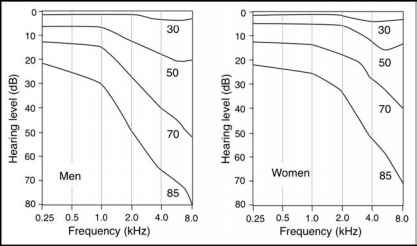Ultrasound and Hearing Range
In today's Making the inaudible, audible lecture by Dr. John Brumley, he brought up ultrasound as well as how hearing ranges decrease in increase of age. He connected these two through the development of a sonic device known as "The Mosquito". It really interested me as to how ultrasound affected people differently depending on their age.
Although we have all heard of ultrasound, how exactly does it work? Ultrasonic sounds are sound waves that are transmitted at a 20,000+ Hz frequency, The human ear can hear from a range of 20 - 20,000 Hz. Because of that, we can't hear ultrasonic sounds. However, that doesn't mean it doesn't affect us. In fact, if the ultrasound is at 120+ decibels, it can cause hearing damage. Furthermore, if it is at 155 decibels, it can cause heat levels which is extremely harmful to the entire body. And if it's at 180 decibels, it can even cause death. Luckily, there are devices that convert and amplify the ultrasonic sound into audible sounds such as the Marskman II.
The mosquito is a sonic device that emits a very high-frequency sound. While it isn't an ultrasonic sound, it is still quite high. This device increases the power of the sound wave to extreme levels and is used as a mechanism to drive people away. Generally, people between the ages of 13-25 can hear this sound. The high-frequency sound is used to reduce loitering and vandalism. However it now draws the question, why can only those people hear it?
As people age, their ability to hear high-pitched frequencies wanes. This is due to the process known as presbycusis. Presbycusis happens when the cells in our ears age naturally. Another reason can be due to noise-induced hearing loss, which is the result of high exposure to loud sounds. When you are in the presence of loud noises, the hair cells in your ear become over-stimulated. Your body then responds to this by sending oxygen to the ear which then leads to oxidative cell death. Because of aging and the long-term effects of loud noises, adults typically can't hear as high of a frequency as younger people with "fresher" ears.
As I was researching the difference between ages, I discovered that there was a difference between males and females as well. Females have better hearing due to a higher hearing sensitivity, greater susceptibility to noise exposure at high frequencies. They also have a shorter latency in the auditory brain system. Because of this, females can hear higher higher-frequencies while men hear lower.
Work Cited:
https://www.today.com/news/controversial-mosquito-sonic-devices-deter-yo...
https://www.scientificamerican.com/article/bring-science-home-high-frequ...
https://spectroline.com/did-you-know-ultrasonic-waves-are-inaudible-humans/
https://www.tandfonline.com/doi/abs/10.1080/87565649809540712?journalCod...
https://www.wikilectures.eu/w/Effects_of_Ultrasound#:~:text=Although%20U....

